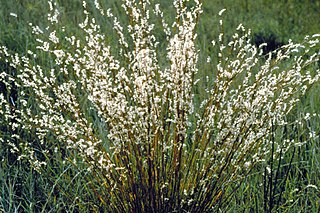
Schizachyrium scoparium, commonly known as little bluestem or beard grass, is a species of North American prairie grass native to most of the contiguous United States as well as a small area north of the Canada–US border and northern Mexico. It is most common in the Midwestern prairies.
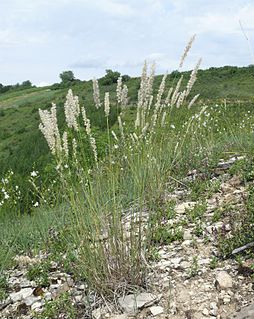
Melica is a genus of perennial grasses known generally as melic or melic grass. They are found in most temperate regions of the world.

Glyceria is a widespread genus of grass family common across Eurasia, Australia, North Africa, and the Americas.

Danthonia californica is a species of grass known by the common name California oatgrass. This plant is native to two separate regions of the Americas, western North America from California to Saskatchewan, and Chile.
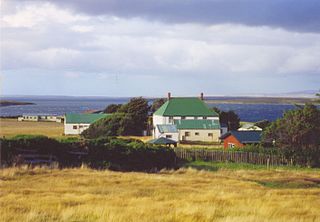
Tussock grasses or bunch grasses are a group of grass species in the family Poaceae. They usually grow as singular plants in clumps, tufts, hummocks, or bunches, rather than forming a sod or lawn, in meadows, grasslands, and prairies. As perennial plants, most species live more than one season. Tussock grasses are often found as forage in pastures and ornamental grasses in gardens.

Melica aristata is a species of grass known by the common names awned melic and bearded melicgrass.

Melica bulbosa is a species of grass known by the common name oniongrass. The common name comes from the onionlike appearance of the corm at its root; it is not related to the onions. It is native to western North America from British Columbia to the Rocky Mountains to California. It may or may not occur as far east as Texas.

Melica californica is a species of grass known by the common name California melic.

Melica geyeri is a species of grass known by the common name Geyer's oniongrass.

Melica harfordii is a species of grass known by the common name Harford's oniongrass.

Melica imperfecta is a species of grass known by the common name smallflower melic and little California melic.

Melica spectabilis is a species of grass known by the common names purple oniongrass and showy oniongrass.
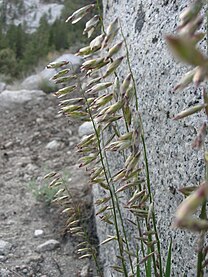
Melica stricta is a species of grass known by the common name rock melic.

Melica subulata is a species of grass known by the common name Alaska oniongrass.

Melica torreyana is a species of grass known by the common name Torrey's melicgrass.

Tripidium ravennae, synonym Saccharum ravennae, with the common names ravennagrass and elephant grass, and known locally as ekra or ikora (ইকঁৰা) in Assamese, is a species of grass in the genus Tripidium. It is native to southern Europe, western Asia and South Asia and is known in North America as an introduced species, where it is sometimes an invasive and troublesome noxious weed.

The Meliceae are a tribe of grasses near the base of the Pooideae. They include two relatively large genera, Melica with about 80-90 species and Glyceria with about 55 species. Its other genera are Koordersiochloa, Lycochloa, Pleuropogon, Schizachne, and Triniochloa.
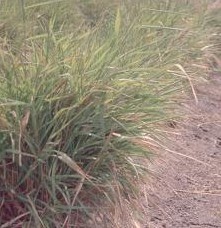
Melica nitens is a species of grass known by the common name threeflower melicgrass. It is native to the central United States.

Louis Hermann Pammel (1862–1931) was an American botanist, conservationist, and professor of botany.
This page is based on this
Wikipedia article Text is available under the
CC BY-SA 4.0 license; additional terms may apply.
Images, videos and audio are available under their respective licenses.


















